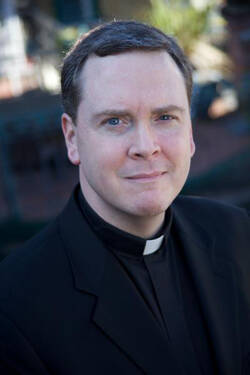Sen. Robert F. Kennedy was fond of quoting Pericles, the statesman in third-century B.C. Athens whose famous funeral oration is almost always the first entry in any anthology of great speeches. As the principal heir to his fallen brother’s ideals, Senator Kennedy prized courage above nearly all other human qualities; indeed, he considered it an indispensable personal and civic virtue. It is no accident, then, that the part of Pericles’s oration that Robert Kennedy quoted most often, especially in his final years, was the Athenian’s own definition of courage: “The bravest are surely those who have the clearest vision of what is before them, glory and danger alike, and yet notwithstanding go out to meet it.”
According to that standard, James Foley, the American journalist who was beheaded last month by radical Islamists, was indeed a very courageous man. He had been kidnapped once before, in Libya, and had seen for himself the savage brutality that marks too much of the day, in too many places, in that part of the world. He was, in other words, well acquainted with the “glory and danger alike” of his mission. Yet he went anyway. As America’s editors note on page 4 of this issue, Mr. Foley was “compelled by the suffering, particularly of children, to endanger his life in order to reveal to the world the horror in Syria, hoping that he could make a difference toward ending it.”
Mr. Foley’s sense of his own mission, however, did not stem from some vague but noble concern for his fellow human beings, but rather from the specific mandate of his deeply-held Christian faith, the same faith that had sustained him through his first imprisonment: “Prayer,” he later said, “was the glue that enabled my freedom, an inner freedom first and later the miracle of being released during a war in which the regime had no real incentive to free us…. It didn’t make sense, but faith did.”
In a world torn asunder by the most horrific acts of barbarity, faith is ultimately the only thing that truly makes sense, the only way that we can even begin to understand human acts that are inherently irrational. For faith reveals, not why there is evil in the world, but how it is, in spite of everything, that there is any love at all. Christians have a special obligation to bear witness to the ultimate source of that love, the son of the living God, who is loving us even now. For among the world’s great faiths, Christians possess the deepest and broadest mandate to forgive, to reconcile.
The first step toward a more just and peaceful world begins with mercy, the kind of mercy that Walter Kasper describes so eloquently in this issue; the mercy God himself commands us to show one another; the kind of mercy the Islamic State refuses to consider. Without mercy, without the radical acts of love to which the Gospel testifies, then the world, despite every other valiant human effort, will fail to realize the true peace for which every human heart, however debased, ultimately longs.
But such acts require courage, “the one essential, vital quality,” Robert Kennedy once said, “for those who seek to change a world that yields most painfully to change.” Pericles would have liked that sentiment, but he would have been baffled by the vague and seemingly unmanly goal of peace and justice that Kennedy had in mind. For Pericles, you see, was not just philosophizing when he spoke of courage: he was rousing his people to wage war against their enemies. Yet what Pericles failed to understand, what Robert Kennedy was beginning to understand when his own life was tragically cut short, is the ultimate truth for which James Foley has now given his life: While waging war requires courage, stopping one requires even more.








